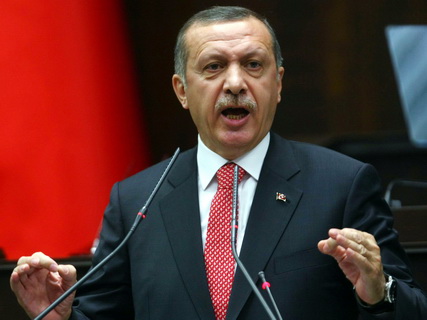CAIRO: “My father is a Greek man. His roots are in Greece, but the Greek roots are somewhere between the Orient and the West, says Margarita Theodorakis, daughter of renowned Greek composer Mikis Theodorakis.
The setting of the concert by the Popular Orchestra “Mikis Theodorakis at the Sound & Light Theater in Cairo on Thursday, with the Pyramids in the backdrop and the call of the muezzin mixing in with the strumming of the bouzouki, provided a fitting analogy to her words.
“For us as Greeks, to be here in Egypt is like a dream, Margarita told Daily News Egypt. “So much of our history is connected, from ancient times until today.
Margarita’s uncle was one of the many Greeks living in Alexandria up to the 1940s, and she says her family always had strong emotional ties with Egypt.
It seemed as if all the Greeks in Cairo were at the concert that evening. But the variety of accents and languages heard in the audience were a testament to the wide appeal of Greece’s most famous composer and cultural icon.
Unfortunately, those who came for the star billing of Greek diva Glykeria were disappointed. According to Yannis Melachronoudis, Cultural Attaché at the Greek Embassy said she fell ill but was expected to make it for the second scheduled performance at the Alexandria Opera House tonight (Saturday, June14).
The evening’s other singers were Iro, Panayiotis Karadimitris, Maria Vlachou, Yakinthi Layiou and Irini Sakkali. For those familiar with the original interpretations of some of the songs, the vocals at times were eerily comparable to older and well-known Theodorakis singers Maria Farandouri and Manolis Mitsias.
The Popular Orchestra “Mikis Theodorakis, headed by Margarita, was formed in 1997 and exclusively plays the songs of Mikis, who shot to fame with the score of “Zorba the Greek (1963), which has become the embodiment of modern Greek music for billions around the world. The orchestra tours extensively in Greece and internationally, and has hosted Greek guest singers such as Yorgos Dalaras, Haris Alexiou, Nena Venetsanou, and Glykeria. The orchestra also has a close collaboration with Turkish star Zulfue Livanelli, as part of its mission to improve Greek-Turkish cultural ties.
Mikis Theodorakis is a living legend for all Greeks, and his life is inextricably entwined with the country’s contemporary history.
“He is our national guru, says his daughter, with the type of immodesty that comes naturally when referring to his massive persona. The story of his life and music is the story of a modern Greece, emerging from the ravages of war and reaffirming its place in a region caught between East and West, with all the passions and paradoxes worthy of a Greek epic.
Mikis was born on the Greek island of Chios, the birthplace of Homer, just across the coast of Turkey. His father was from Crete and his mother from Asia Minor, the formerly Greek-populated area of modern-day Turkey.
He has been with his wife Myrto for the past 60 years, the famously enduring relationship in his life despite early years in exile and imprisonment.
They had two children, Margarita and Yorgos. Margarita has continued her father’s musical legacy with the formation of the orchestra, in which her two sons are also musicians – the family resemblance is indeed striking.
Throughout the majority of Mikis’ long career, however, his strong political views polarized his fans and detractors and are symbolic of the country’s struggles. Although his music and persona had always been identified with the left, in 1990 he created a furor by joining the center-right New Democracy Party, as a protest against the corruption of the ruling Socialist government.
“My father always defended the oppressed, says Margarita. “He was like Moses for Greece – a prophet. Everything he has said has come true, even if it occurred 30 years later, she said defending his at-times unpopular views.
His first brush with resistance was in 1943 at the age of 18, when he demonstrated against the occupying Italian forces and was captured and tortured.
After the liberation, the Greek civil war broke out and further plunged the country into poverty and oppression. Mikis went underground, was caught and exiled to the island of Ikaria (whose inhabitants still overwhelmingly vote for the Communist Party today, and who still speak fondly of Mikis’ stay on the island) and Makronissos, the much-reviled prison island.
After a decade in Paris, and returning to Greece in 1960, he became deeply engaged in the leftist movement once again, and was elected Member of Parliament. Things took a turn for the worse with the bloody military dictatorship of 1967, when he was arrested and imprisoned, followed by periods of hunger strike, house arrest and internal exile.
Through international pressure from people like Arthur Miller and Yves Montand, he was released to return once more to Paris, where he led the cultural and political struggle for the fall of the dictatorship. His concerts and music galvanized protests from other countries with similar repressive regimes and he associated with other intellectual and political figures such as Pablo Neruda, Salvador Allende, Egypt’s Gamal Abdel Nasser (for whom he composed a hymn), Yasser Arafat, Igal Alon (he acted as an early mediator between Israel and Palestine), and Francois Mitterand.
It was understandable that his political about-face in the 90s would cause a scandal in Greece, a move he later repudiated by returning to his leftist leanings and support of the oppressed. He has noticeably championed improved ties with Turkey, and promoted Israeli-Palestinian peace.
“Mikis strongest beliefs are in promoting peace and understanding amongst people, says Margarita, “and music brings people together.
“He has been tortured, exiled and humiliated, like all people who try to be free, she says. “He has a gift, and that gift was his music. But first and foremost, he remains a fighter for human dignity.
Mikis Theodorakis, the rebel, the politician, the statesman, the composer of symphonies and popular ballads, the iconoclast and inspiration for people around the world, celebrated his 80th birthday a couple of years ago with a series of tributes and commemorative concerts.
When asked how her father was today, Margarita says: “My father is like all fathers. He is 82, he is very old, he will die soon. He cannot walk and he can no longer compose. But, he can still think. May we all be like him at that stage.
Today Greece has evolved into a modern albeit tumultuous democracy, with all the trappings of a consumer society. Mikis’ ideology transports the listener back to a time when music was a tool to be wielded against dictatorship and oppression.
For those who still want to get a glimpse of this free spirit, you can still catch the concert in Alexandria tonight.
-Helen Konstantopoulos is Business Development Director for the International Herald Tribune and contributed this review especially for Daily News Egypt.

